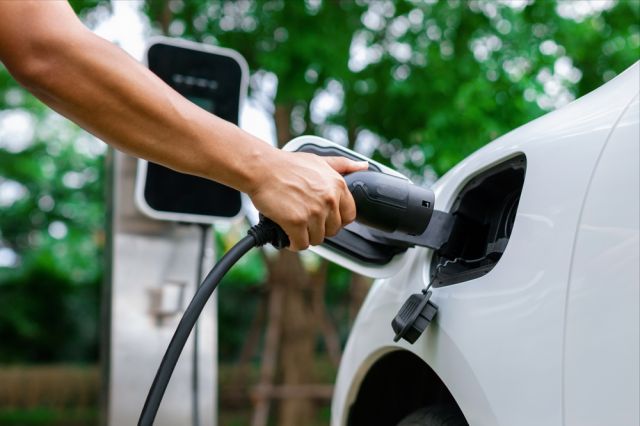
A rapid uptick in electric vehicle (EV) usage—especially in the U.S., the EU and China—could displace up to 12 MMbbl/d of oil demand by 2035, the International Energy Agency said. (Source: Shutterstock)
A rapid uptick in electric vehicle (EV) usage—especially in the U.S., the EU and China—could displace up to 12 MMbbl/d of oil demand by 2035, the International Energy Agency (IEA) said in a new June 21 report reflecting its most optimistic climate goals scenario.
Policy developments, such as new emissions standards adopted in the past year by the U.S., Canada and the EU, continue to support expectations for rapid electrification.
“If all the national energy and climate targets made by governments are met in full and on time, as in the Announced Pledges Scenario (APS), two-thirds of all vehicles sold in 2035 could be electric,” the IEA said.
Industrial incentives—such as those in the U.S.’ Inflation Reduction Act (IRA), the EU’s Net Zero Industry Act, China’s 14th Five-Year Plan and India’s Production Linked Incentive (PLI) scheme—also incite adding value and creating jobs across EV supply chains in those economies, the IEA said.
The IEA’s latest report, the Stated Policies Scenario (STEPS), is less ambitious. The scenario it describes is based off of existing policies and measures, as well as firm policy ambitions and objectives that have been legislated by governments around the world.
Under STEPS, an estimated 6 MMbbl/d of oil demand could be displaced in 2030, while 10 MMbbl/d could be displaced by 2035.
The Paris-based agency said policy support will boost industry investment and build confidence that rapid electrification of EVs of all types—cars, vans, trucks, buses and two- or three-wheelers—will continue over the short and medium term.
“As soon as 2030, almost one in three cars on the roads in China is electric in [the STEPS analysis], and almost one in five in both the U.S. and EU,” the IEA said. “Every other car sold globally in 2035 is set to be electric based on today’s energy, climate and industrial policy settings,” significantly impacting the global car fleet, the agency said.
RELATED
Q&A: Merge CEO Glen Stancil on EVs, Tax Credits and Selling in Midland, Texas
The IEA expects electric car sales to continue to rise this year. Sales could reach around 17 million in 2024, accounting for more than one in five cars sold worldwide. This compares to global sales of electric cars that neared 14 million in 2023, reaching 18% of all cars sold.
Recommended Reading
Bloom Energy, Chart Industries Form CCUS Partnership for Low-Emissions NatGas
2025-02-14 - Bloom Energy and Chart Industries aim to use natural gas and fuel cells to generate power through their carbon capture partnership.
Gevo Completes $210MM Red Trail Assets Deal for Ethanol Plant
2025-02-05 - Gevo has renamed an ethanol production plant and CCS assets acquired from Red Trail Energy as “Net-Zero North.”
Chevron JV Plans 4-GW Project to Fulfill US Data Center Power Needs
2025-01-28 - Chevron U.S.A. Inc., Engine No. 1 and GE Vernova will develop the natural gas-fired power plants co-located with data centers amid President Trump’s push for AI dominance.
New Era Helium Signs NatGas Deal to Supply Permian Data Center Campus
2025-03-02 - The AI data center project will be developed on 200 acres of land the Texas Critical Data Centers joint venture will be acquiring. The project is expected to be online by the end of 2026.
Constellation Bets Big on NatGas in $16.4B Deal for Calpine
2025-01-10 - Constellation Energy will acquire Calpine Corp. in a $26.6 billion deal, including debt, that will give the pure-play nuclear company the largest natural gas power generation fleet.
Comments
Add new comment
This conversation is moderated according to Hart Energy community rules. Please read the rules before joining the discussion. If you’re experiencing any technical problems, please contact our customer care team.






